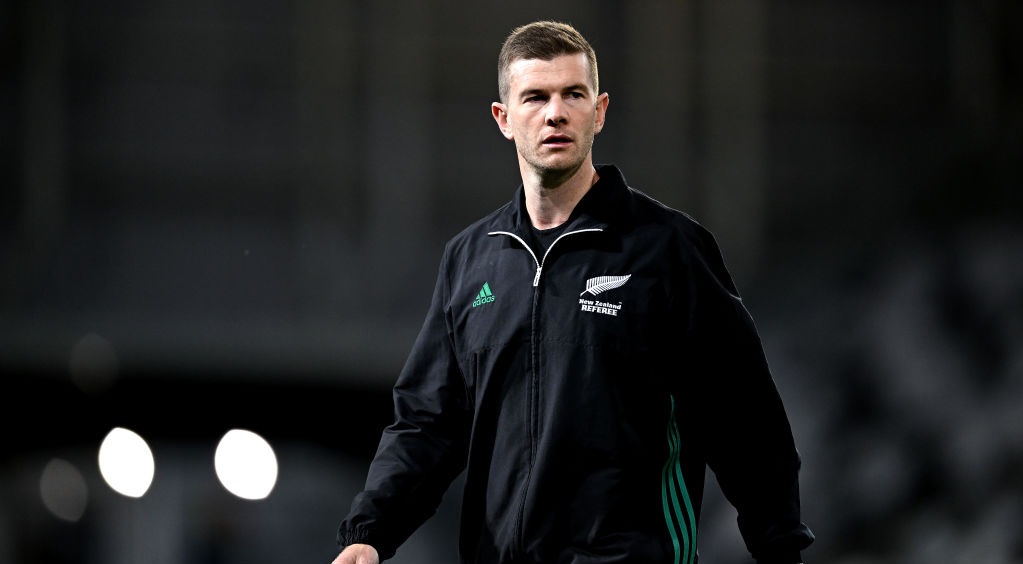World Rugby refereeing rethink: Head coaches and talent ID roles

World Rugby has announced a new strategy aimed at transforming the landscape of rugby union match officiating worldwide.
Following the approval of a new global calendar and the expansion of the Rugby World Cups, this initiative introduces a structured approach to enhance the quality of officiating across the sport.
While the men’s Emirates World Rugby High Performance Match Officials structure will continue under the leadership of Elite Men’s Match Officials Manager Joël Jutge, two new head coaches are being added.
Brendon Pickerill will take over as Elite Men’s 15s Match Officials head coach, while Joy Neville will take up the equivalent role as Elite Women’s 15s Match Officials head coach.
Phil Davies, serving as the director of rugby, oversees an expanded match officials management group that now includes a new talent identification manager, the aforementioned match official head coaches for men’s and women’s 15s, a women’s pathway manager, and support for officials from emerging nations.
The selection group for this structure will be chaired by World Rugby Executive Board member Brett Robinson, including independent selectors Dave McHugh and Mitch Chapman, along with Jutge, Pickerill, and Davies.
The women’s structure mirrors this approach, led by Elite Women’s Match Officials manager Alhambra Nievas and newly appointed Elite Women’s 15s Match Officials head coach Neville. Su Carty chairs the selection group, which also includes Andrew Macpherson and Wayne Erikson, alongside Nievas, Neville, and Davies.
For sevens, the Elite Sevens Manager Paddy O’Brien is supported by High Performance Sevens Coach Craig Joubert, with John Lacey appointed as Talent Identification Manager for both men’s and women’s 15s.
The strategy also allows for specialist coaching support in areas such as scrum, lineout, performance, and mental well-being, involving experts like Alex Corbisiero and Richie Gray.
World Rugby say that an emphasis is placed on equality within the elite officiating structures for both men and women, ensuring a unified and integrated operation that promotes officials based on merit alone.
To support these objectives, the men’s and women’s officiating selection groups will be organized with independent chairs and selectors from both the northern and southern hemispheres, alongside the respective World Rugby referee managers.
This strategy is set to be implemented across all major elite club competitions, adopting a data-driven performance management approach to ensure consistency in officiating standards, regardless of the competition’s location. The aim is to achieve clarity and uniformity across all competitions.
World Rugby Director of Rugby Phil Davies said: “Rugby is a sport built on collaboration and communication, and it is imperative that we have a truly unified, clear and consistent approach across match officiating regardless of country or competition. This is important for officials, players, coaches and fans.
“This new strategy is an evolution, not revolution, but it does for the first time set us up for success, bringing all stakeholders – unions, coaches and players on to the same page regarding on-field focus, while implementing the foundation structures that will support match officials coming through the system and at the top as we accelerate into a new era for the sport.”









































































